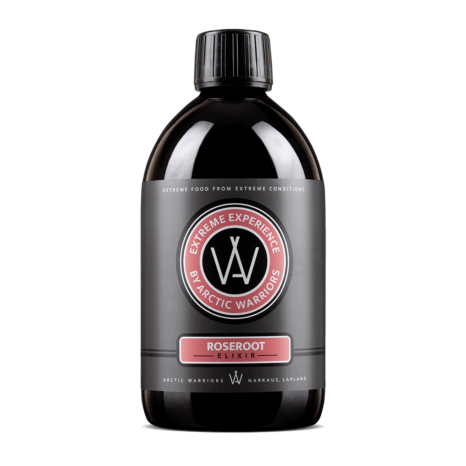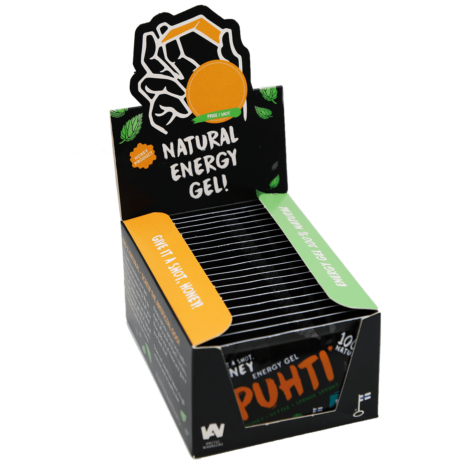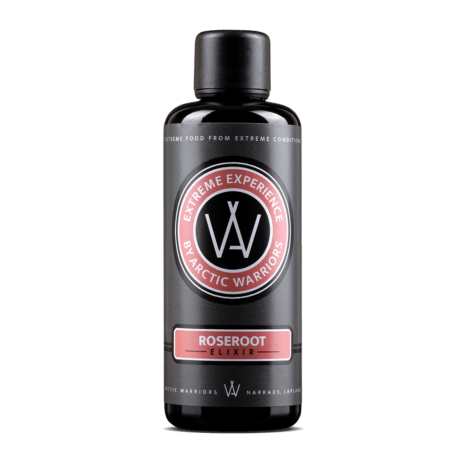Your shopping cart is empty!
Roseroot
Roseroot – Boost Your Performance
Despite its beautiful name, roseroot (Rhodiola Rosea), also known as the “ginseng of the North,” is a strong herb that has been used for over a thousand years. It was an indispensable source of power for Vikings who conquered the seas and has been used by cosmonauts to boost their physical and mental performance on demanding space journeys. The Russians have researched the health benefits of roseroot since the 1960s.
Roseroot’s Benefits
Rosavins and salidrosides are the effective compounds that make roseroot such an effective herb. The further north the herb grows, the more potent these compounds are.
Roseroot contributes to normal blood circulation, which is associated with brain performance and reactivity, and contributes to optimal mental and cognitive activity. It gives endurance for sports performances and acts as an adaptogen that protects during physical stress. It also helps maintain normal function of the circulatory system, providing cells with oxygen and nutrients.
Dosage of Roseroot
Even though roseroot is a strong herb, it is safe to use. However, there is no reason to take more than recommended. The maximum dosage for adults is 2 herbal shots or 2 teaspoons of bottled extract. In our honey products, the roseroot concentration is lower, thus there is no such limit to their use.
Children over three years of age can take roseroot. For those aged 3-7 years, half a dosage is enough. Honey products are not recommended for children under 1 year of age.
Research About Roseroot
- Sanders, H, Health Ambition, 2017, Rhodiola Rosea Benefits
- Rhodiola Benefits: Burning Fat for Energy and Beating Depression
- Antioxidative effects of Cinnamomi cassiae and Rhodiola rosea extracts in liver of diabetic mice
- Life Extension, 2017 Nutraceutical Update: Rhodiola
- Stress reliever (Cropley et al. 2015. Phytotherapy research 29:1934–1939)
- Galambosi, B., Galambosi, Zs., Slacanin, I. 2007. Comparison of natural and cultivated roseroot (Rhodiola rosea L.) roots in Finland. Zeitschrift für Arznei- & Gewürzpflanzen 12, 3: 141-147.
- Kosman, V. M., Shikov, A.N., Makarov, V.G., Galambosi, B., Dragland, S., Vender, C. 2004. Comparative analysis of European and Russian Rhodiola rosea samples. In: Actual problems of creation of new medicinal preparations of natural origin : the 8th international congress Phytopharm 2004 Mikkeli, Finland June 21-23, 2004: Proceedings of congress. St.-Petersburg: VVM.co.. p. 268-274 .
- Martinussen, I., Volodin,V., Rothe, G., Jakobsen, K., Nilsen, H. 2011. Effect of climate on plant growth and level of adaptogenic compounds, in Maral root (Leuzea carthamoides (Willd.) DC., Crowned Snow-wort (Serratula coronata L.) and Rosenroot (Rhodiola rosea L.). The European Journal of Plant Science and Biotechology 5. (Special Issue) ©.Globan Science Books. 5(1): 72-77
- Thomsen, M.G. 2012. Breeding and selection of high quality plants of Rhodiola rosea. Abstracts of Phytopharm 2012 Congress. in: Reviews of clinical pharmacology and plant drug therapy.TOM 10/2012/2. M 206.
Roseroot products in the shop
-
Roseroot elixir 500 ml69.00 €
-
PUHTI energy gel 20 x 15 g28.90 €
-
Roseroot elixir 100 ml24.90 €


